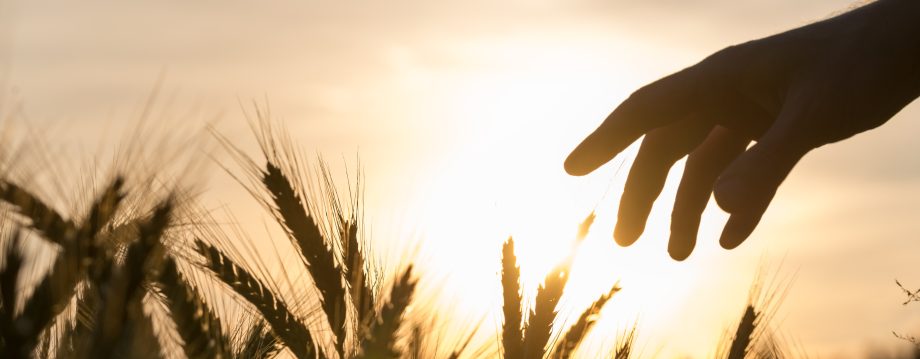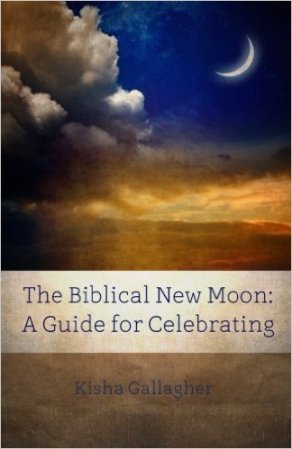Who doesn’t need more hope?
In Part I, we touched on the Hebrew word tikvah, hope, and trusting that in the end, God really will come through for us. Hope is an expectation for something FUTURE. It involves patience, waiting, and trusting.
Surely there is a future (aharit), and your hope (tikvah) will not be cut off. (Pr. 23:18)
Know that wisdom is thus for your soul; if you find it, then there will be a future (aharit), and your hope (tikvah) will not be cut off. (Pr. 24:14)
In Hebrew there is a play on words in these verses. Remember how hope or tikvah is also a bound rope or cord? The above verses paint a picture of hope being like a rope that is NOT cut off. It doesn’t snap, break, or unravel. Though the fiery trials of life might feel as if you are only hanging on by a thread, that thread is far stronger than we imagine. Tikvah or hope comes with the promise of a future. You can count on this “thread,” it leads someplace, which is the future.
Placing your hope in the LORD will not leave you wanting or disappointed as hard as the struggle might be in the moment. Adonai has a plan for you and He has not left you “hanging.”
“For I know the plans that I have for you,” declares the LORD, “Plans for welfare and not for calamity to give you a future (aharit) and a hope (tikvah).” (Jer. 29:11)
“There is hope (tikvah) for your future (aharit),” declares the LORD, “And your children will return to their own territory.” (Jer. 31:17)
Why do we struggle so much with getting this? We have a future. There is hope in every situation. This is true even in death.
“For this Elohim is our Elohim, forever and ever; He Himself leads us, even to death.” (Psalms 48:14, TS2009)
Though death seems so very final and scary to us, there is still hope. But even knowing this, we more often mope around and mutter along with the dry dead bones in Ezekiel these words:
… ‘Our bones are dried up and our hope (tikvah) has perished. We are completely cut off.‘ (Ezek. 37:11)
Notice how Adonai reverses this negative confession in the next few verses.
Therefore prophesy and say to them, “Thus says the Lord GOD, ‘Behold, I will open your graves and cause you to come up out of your graves, My people; and I will bring you into the land of Israel. Then you will know that I am the LORD, when I have opened your graves and caused you to come up out of your graves, My people. I will put My Spirit within you and you will come to life, and I will place you on your own land. Then you will know that I, the LORD, have spoken and done it,’ declares the LORD.” (Ezek. 37:12-14)
Do you ever feel as hopeless as an old bag of dry bones? Are you walking through the valley of the shadow of death right now? Are you so overwhelmed with the issues of life that you feel as if the marrow in your bones has dried up and crumbled? If Adonai can cause living flesh to grow anew on dead bones and raise one from the grave, how much more can He speak life and a future hope into our personal circumstances right now?
We must cling to our great hope and never give up! It is as real as the scarlet cord that saved the life of Rahab and her family. It is not a coincidence that our aharit (future) is so often mentioned with our tikvah (hope). It’s not a hope for the future. Our hope IS our future! Our Elohim (God) is no respecter of persons, He is faithful.
King David, whose life and livelihood was in peril many, many times, knew how to remind his soul of the truth when he was hanging by a thread.
Psalms 23:1-6 (NASB)
1 A Psalm of David. The LORD is my shepherd, I shall not want.
2 He makes me lie down in green pastures; He leads me beside quiet waters.
3 He restores my soul; He guides me in the paths of righteousness For His name’s sake.
4 Even though I walk through the valley of the shadow of death, I fear no evil, for You are with me; Your rod and Your staff, they comfort me.
5 You prepare a table before me in the presence of my enemies; You have anointed my head with oil; My cup overflows.
6 Surely goodness and lovingkindness will follow me all the days of my life, And I will dwell in the house of the LORD forever.
David trusted that God leads one like a shepherd. Adonai is the sovereign King of the Universe and not one single thing happens that He does not preside over. Therefore, because God is my shepherd, I shall not want, lack, or need despite what it “feels” like in the moment. He will, once again, give me rest in green pastures and drink from still waters, restoring my soul. The scary giants, obstacles, enemies, and circumstances that steal my breath and cause me to fear for my life or livelihood ARE the places where Adonai IS with me. These “places” are His rod of correction, His goads that teach me the things that I need to learn – they are for my good. In this, I can trust Him and be comforted. I have no need to fear evil or enemies because they can do nothing outside the good, loving will of my Savior.
This is also like the trust that Shadrach, Meshach, and Abednego had when faced with death. Rather than bow to the false image of Babylon, they offered up their bodies. They believed that Adonai was fully capable of saving them from the fiery furnace, but even if He chose to not save them, His will was for the good, and their hope in new life was not diminished.
“If it be so, our God whom we serve is able to deliver us from the furnace of blazing fire; and He will deliver us out of your hand, O king. But even if He does not, let it be known to you, O king, that we are not going to serve your gods or worship the golden image that you have set up.” (Daniel 3:17-18, NASB)
After turning up the heat seven times hotter than normal, they were tied up and cast into furnace. The king was astonished to see them untied and walking around in the flames. But there was a fourth one there with them!
“Look!” he answered, “I see four men loose, walking in the midst of the fire; and they are not hurt, and the form of the fourth is like the Son of God.” (Daniel 3:25, NKJV)
What did David say? “Even though I walk through the valley of the shadow of death, I fear no evil, for You are with me.” Beloved, no matter what you are facing, no matter how horrible your prognosis, the “fourth” one is with you in the very midst of this fiery trial. Your suffering is not in vain. Your pain and turmoil are producing something eternal. Stand on that and believe!
“For our trouble, light and momentary, is producing for us an eternal weight of glory far beyond all comparison, as we look not at what can be seen but at what cannot be seen. For what can be seen is temporary, but what cannot be seen is eternal.” (2 Corinthians 4:17-18, TLV)
Thus, Peter said:
Cast all your worries on Him, for He cares for you. Stay alert! Watch out! Your adversary the devil prowls around like a roaring lion, searching for someone to devour. Stand up against him, firm in your faith, knowing that the same kinds of suffering are being laid upon your brothers and sisters throughout the world. After you have suffered a little while, the God of all grace—who has called you into His eternal glory in Messiah—will Himself restore, support, strengthen, and establish you. All power to Him forever! Amen. (1 Peter 5:7-11 TLV)
The scarlet thread of hope, redemption, and salvation IS trustworthy. It is more real that a tangible rope you can grasp with your hands. Let go of anything that is preventing you from trusting and believing that God loves and cares for you. He is no respecter of persons. He WILL do for you what He does for others. You are not alone and you have not been forgotten. Release your fear, doubt, and unbelief and look toward the future.




 With all these rich themes, is it any wonder that the Book of Ruth is read during YHWH’s feast of Shavuot (Pentecost)? Creation Gospel students will recognize the significance immediately: Shavuot falls on the central (main) branch of the menorah. As such, it encompasses the whole. Shavuot stands as the “servant” to all the other moedim (feasts). A careful read of Ruth will demonstrate this fullness. We will try to stay focused only on those themes that directly link Ruth to an Eshet Chayil. With so many treasures in this book, that is going to be difficult!
With all these rich themes, is it any wonder that the Book of Ruth is read during YHWH’s feast of Shavuot (Pentecost)? Creation Gospel students will recognize the significance immediately: Shavuot falls on the central (main) branch of the menorah. As such, it encompasses the whole. Shavuot stands as the “servant” to all the other moedim (feasts). A careful read of Ruth will demonstrate this fullness. We will try to stay focused only on those themes that directly link Ruth to an Eshet Chayil. With so many treasures in this book, that is going to be difficult! The circumstances surrounding this encounter and proclamation however, are quite risqué. Naomi instructs Ruth in a secret seduction plan to attract Boaz. Both Ruth and Naomi were already aware that Boaz favored Ruth. This could be seen when Boaz told Ruth to only glean from his fields
The circumstances surrounding this encounter and proclamation however, are quite risqué. Naomi instructs Ruth in a secret seduction plan to attract Boaz. Both Ruth and Naomi were already aware that Boaz favored Ruth. This could be seen when Boaz told Ruth to only glean from his fields But Naomi’s plan was anything but orthodox. Ruth risked her reputation and future by approaching Boaz in the middle of the night. Her actions were a reversal of cultural norms. Ruth pursued Boaz. It is usually the man that pursues the woman, even in today’s world. Essentially, she got all dolled up and offered herself to Boaz in a secret proposal.
But Naomi’s plan was anything but orthodox. Ruth risked her reputation and future by approaching Boaz in the middle of the night. Her actions were a reversal of cultural norms. Ruth pursued Boaz. It is usually the man that pursues the woman, even in today’s world. Essentially, she got all dolled up and offered herself to Boaz in a secret proposal. Take note of the process Boaz goes through to acquire Ruth. He scrupulously follows the Torah (instructions/law) of YHWH. In other words, unlike fallen Adam, Boaz puts YHWH before the woman. As much as he may desire her, he faithfully obeys the proper course of action. Boaz was functioning in his “redeemed” purpose. And by the looks of things, he had no problem with allowing Ruth to function in her purpose as ezer. He realized that he had found an eshet chayil!
Take note of the process Boaz goes through to acquire Ruth. He scrupulously follows the Torah (instructions/law) of YHWH. In other words, unlike fallen Adam, Boaz puts YHWH before the woman. As much as he may desire her, he faithfully obeys the proper course of action. Boaz was functioning in his “redeemed” purpose. And by the looks of things, he had no problem with allowing Ruth to function in her purpose as ezer. He realized that he had found an eshet chayil! Tamar accomplished her kinsmen redemption by deceiving Judah. She dressed up as a prostitute and seduced him. Later, when Judah learned she was pregnant, he wanted to have her burned alive. However, when she proved that Judah was the father of her growing womb —- he declared her more righteous than himself. As a result, Tamar secured the lineage of the Tribe of Judah. It is through the line of Tamar’s firstborn, Perez, that Boaz, Oved, Jesse, David, and eventually the Mashiach (Messiah) would come.
Tamar accomplished her kinsmen redemption by deceiving Judah. She dressed up as a prostitute and seduced him. Later, when Judah learned she was pregnant, he wanted to have her burned alive. However, when she proved that Judah was the father of her growing womb —- he declared her more righteous than himself. As a result, Tamar secured the lineage of the Tribe of Judah. It is through the line of Tamar’s firstborn, Perez, that Boaz, Oved, Jesse, David, and eventually the Mashiach (Messiah) would come. Rahab was an Amorite of the city of Jericho. She was an innkeeper and a supposed prostitute that had heard great stories about the God of Israel. When the Israeli spies came to her city, she placed her allegiance with them and YHWH by helping the spies escape safely. When the Israelites came back to take Jericho, she let down a scarlet cord from her window. The men of Israel recognized this sign and she and her family were spared. They joined Israel as sojourners. Later, Rahab marries an Israelite named Salmon, who became the father of Boaz
Rahab was an Amorite of the city of Jericho. She was an innkeeper and a supposed prostitute that had heard great stories about the God of Israel. When the Israeli spies came to her city, she placed her allegiance with them and YHWH by helping the spies escape safely. When the Israelites came back to take Jericho, she let down a scarlet cord from her window. The men of Israel recognized this sign and she and her family were spared. They joined Israel as sojourners. Later, Rahab marries an Israelite named Salmon, who became the father of Boaz


